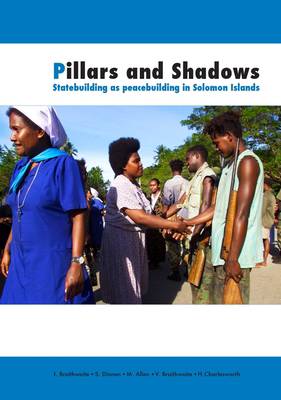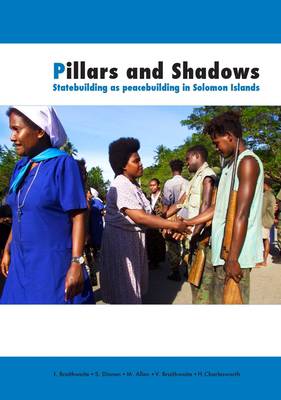
Bedankt voor het vertrouwen het afgelopen jaar! Om jou te bedanken bieden we GRATIS verzending (in België) aan op alles gedurende de hele maand januari.
- Afhalen na 1 uur in een winkel met voorraad
- Gratis thuislevering in België
- Ruim aanbod met 7 miljoen producten
Bedankt voor het vertrouwen het afgelopen jaar! Om jou te bedanken bieden we GRATIS verzending (in België) aan op alles gedurende de hele maand januari.
- Afhalen na 1 uur in een winkel met voorraad
- Gratis thuislevering in België
- Ruim aanbod met 7 miljoen producten
Zoeken
Pillars and Shadows
Statebuilding as peacebuilding in Solomon Islands
John Braithwaite, Sinclair Dinnen, Matthew Allen
€ 40,45
+ 80 punten
Omschrijving
This volume of the Peacebuilding Compared Project examines the sources of the armed conflict and coup in the Solomon Islands before and after the turn of the millennium. The Regional Assistance Mission to Solomon Islands (RAMSI) has been an intensive peacekeeping operation, concentrating on building 'core pillars' of the modern state. It did not take adequate notice of a variety of shadow sources of power in the Solomon Islands, for example logging and business interests, that continue to undermine the state's democratic foundations. At first RAMSI's statebuilding was neither very responsive to local voices nor to root causes of the conflict, but it slowly changed tack to a more responsive form of peacebuilding. The craft of peace as learned in the Solomon Islands is about enabling spaces for dialogue that define where the mission should pull back to allow local actors to expand the horizons of their peacebuilding ambition.
Specificaties
Betrokkenen
- Auteur(s):
- Uitgeverij:
Inhoud
- Aantal bladzijden:
- 212
- Taal:
- Engels
- Reeks:
Eigenschappen
- Productcode (EAN):
- 9781921666780
- Verschijningsdatum:
- 1/11/2010
- Uitvoering:
- Paperback
- Formaat:
- Trade paperback (VS)
- Afmetingen:
- 176 mm x 250 mm
- Gewicht:
- 489 g

Alleen bij Standaard Boekhandel
+ 80 punten op je klantenkaart van Standaard Boekhandel
Beoordelingen
We publiceren alleen reviews die voldoen aan de voorwaarden voor reviews. Bekijk onze voorwaarden voor reviews.












